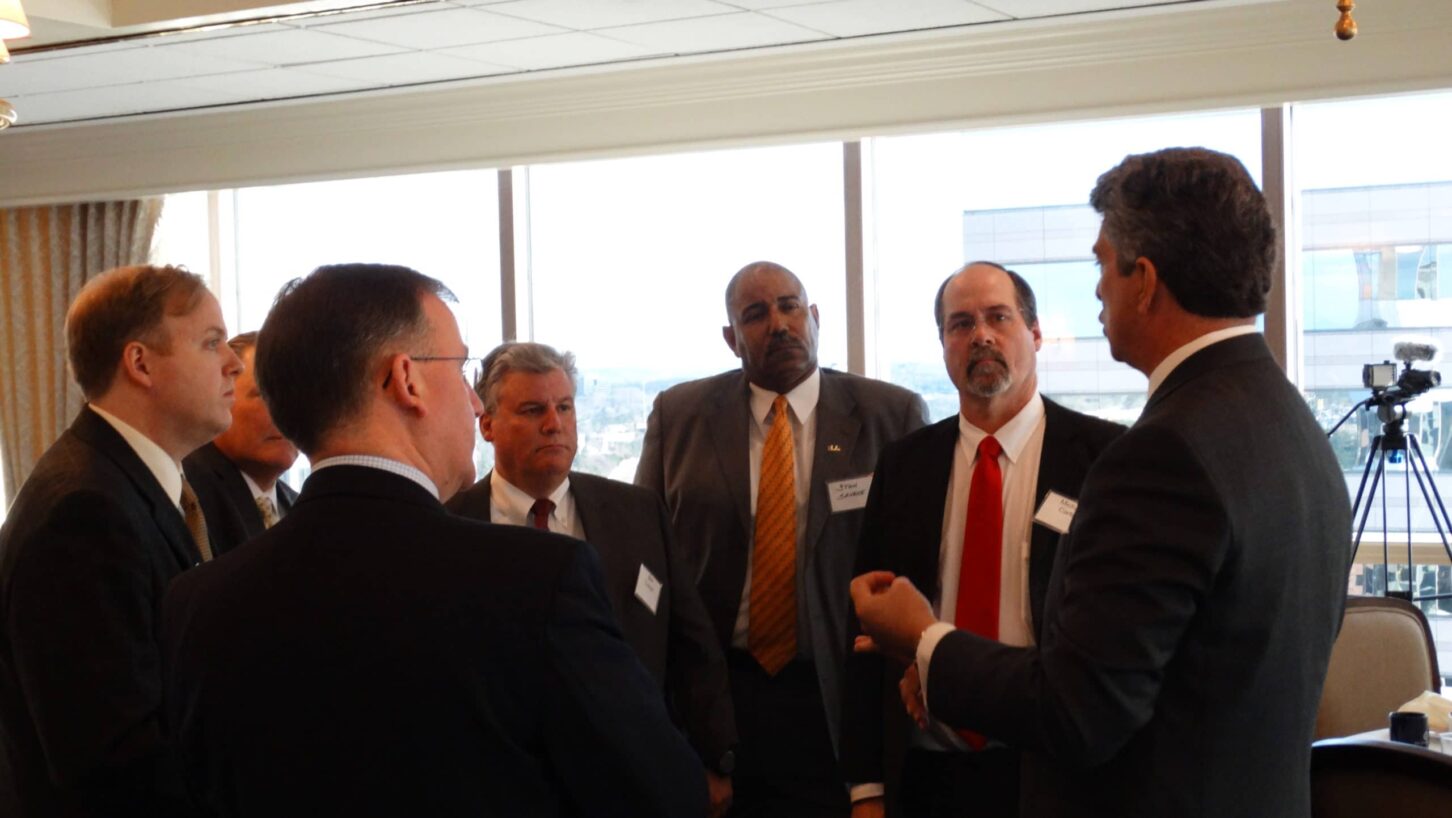
It’s Friday!
Then and Now

My, how we’ve grown: In 1991, the year the Georgia Public Policy Foundation was established, the Governor’s Commission on Effectiveness and Economy in Government released its second interim report. The Foundation was asking, “Is operating a water park a legitimate function of state government?” By 1996, management of Lake Lanier Islands Resort and Water Park was outsourced. Such questions remains core to our policies.
Events
March 10: Mark your calendar for, “At the Inter$ection of Education and Aging,” an 8 a.m. Foundation Leadership Breakfast at Cobb County’s Georgian Club with Dr. Matt Ladner, Senior Advisor for the Foundation for Excellence in Education. $30. Details here; registration here.
Quotes of Note
“It’s appropriate to celebrate public service, and the thoughtful people who choose to serve. They symbolize what is good and decent about this historic citizen legislature, and we thank them.” – Bob Ehrlich
“Every action done in company ought to be with some sign of respect to those that are present.” – George Washington
“The judge who always likes the results he reaches is a bad judge.” – Justice Antonin Scalia (March 11, 1936 – February 13, 2016)
Economic opportunity
Freedom in the states: The John Locke Foundation created an index to rate the freedom of individual states. The ratings were determined by giving 50 percent weight to fiscal policy, 20 percent to educational policy, 20 percent to regulatory policy, and 10 percent to health care policy: The top five free states were Florida, Arizona, Indiana, South Dakota, and Georgia.
License to work: Restrictive occupational licensing requirements “create barriers for real people, impede their choices, and prevent them from pursuing their dreams,” Becki Gray of the John Locke Foundation writes in Carolina Journal. She eloquently explains why a recent U.S. Supreme Court decision should be a wake-up call for North Carolina to address unnecessary barriers to jobs. Georgia faces a similar situation.
Oasis in a food desert: Google is testing same-day delivery of fresh groceries in certain areas. Could this support a social enterprise model to address the “food desert” problem in low-income areas?
Kudos: Two of the Foundation’s senior fellows, Dr. Frank Stephenson at Berry College and Dr. Ben Scafidi at Kennesaw State University, have articles featured in the Cato Journal’s special edition honoring economist Richard Vedder.
Government reform
Time is money: Georgia has settled a 2014 class action lawsuit alleging delays in applications and renewals for food stamps led to applicants being incorrectly denied. About 47,760 eligible households will receive an average of $463. During the scope of this lawsuit (October 2013 through December 2014) the state issued more than $3.5 billion to about 842,000 households each month. Work requirements for able-bodied individuals were implemented in January; numbers have yet to be updated.
Broadband: A Franklin Center article explains where and why taxpayer-funded municipal broadband boondoggles like Peachtree City’s are resurfacing. Why? The Federal Communications Commission last year struck down laws preventing local governments from building out and competing with other broadband networks.
Health care
Right to try: The Georgia House unanimously passed “Right to Try” legislation this week. The Senate will now consider the proposal to allow terminally ill patients to use drugs, medical devices and treatments that have completed the first phase of a federal trial and remain under study. The Foundation wrote on “Right to Try” last year.
Transportation
Streetcar I: As expected, Atlanta Streetcar ridership has plunged now that passengers must pay. It took in less than $10,000 in January, its first month of paid ridership, according to WSB-TV. That’s about 1/500th of its annual $5 million operating and maintenance budget. There were 64,448 riders in January 2015, when there was no $1 fare. The Foundation predicted this would happen.
Streetcar II: Even in high-density New York City, a streetcar is a bad idea, according to Randal O’Toole of the Cato Institute. He cites David Bragdon, previously president of Portland’s Metro Council: “Most streetcar projects in the U.S. provide slow, unreliable service that does not serve many people,” Bragdon noted, urging New York not to “repeat the mistakes of other places and spend $2.5 billion if the result is not useful transportation for riders.”
Friday Flashback
This month in the archives: In February 2011, the Foundation published, “Home Remedies for What Ails Health Care.” It noted, “Health care is one of the epicenters of the challenge to our liberty and freedom,” [Dr. Tom] Price says. “We can’t have a central system that responds to patients’ needs; none of the solutions require putting the federal government in charge of our lives.”
Media
YouTube: Click here for the video and PowerPoint from “Georgia Criminal Justice Reform: Looking Ahead, Staying Ahead,” with Judge Michael P. Boggs, co-chairman of the Criminal Justice Reform Council. View video here of Senior Fellow Baruch Feigenbaum’s Senate testimony last week on MARTA’s proposed rail expansion.
Foundation in the news: The Waycross Journal Herald, The Coastal Courier and The Citizen published “Georgia Needs Direct Care Now,” by Hal C. Scherz. The Monroe County Reporter published, “Ga. Lawmakers Should Expand Freedom,” by Kelly McCutchen.
Social media: View this week’s event photos on Facebook here. The Foundation has 2,863 Facebook “likes” and 1,568 Twitter followers at twitter.com/gppf. Follow us on Instagram, too!
Visit https://live-gppf.pantheonsite.io to read our latest commentary, “The Future Path of the Supreme Court,” by Hans von Spakovsky.
Have a great weekend!
Kelly McCutchen and Benita Dodd
FRIDAY FACTS is made possible by the generosity of the Georgia Public Policy Foundation’s donors. If you enjoy the FRIDAY FACTS, please consider making a tax-deductible contribution to help advance our important mission by clicking here. Visit our Web site at www.georgiapolicy.org. Join The Forum at http://forum.georgiapolicy.org/. Become a fan of the Foundation on Facebook and follow us at twitter.com/gppf and Instagram.